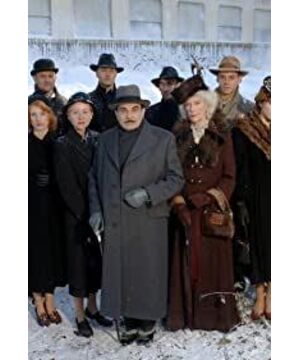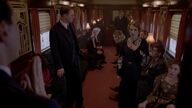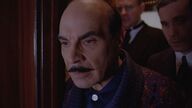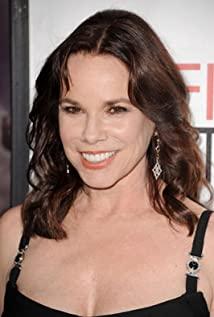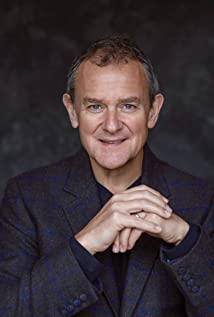This version is full of depressing, heavy and desolate atmosphere from beginning to end, and the eyes of those who watch it at the end are moist. The airtight carriage, the sinful dead, the twelve stab wounds, the Orient Express was not difficult for Polo to reason about compared to other cases. From the beginning of the middle section, Poirot basically knew what he knew, and his inner justice and legal entanglement started from that moment, and it didn't break out until the last ten minutes. Compared with the old version of the reasoning, although it is weakened, it is reasonable and reasonable. He has experienced countless physical and mental exhaustions. Even though he is still wise and sharp, he has seen everything early, but he does not have the energy to impassively identify the murderers one by one.
As an old version of an independent film, it is a classic, and as an episode in a series of TV series, this version is also an undoubted classic.
View more about Murder on the Orient Express reviews


